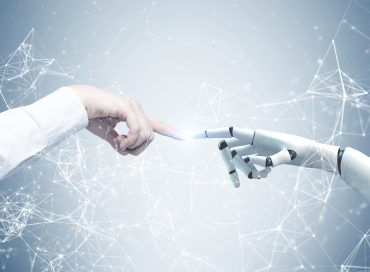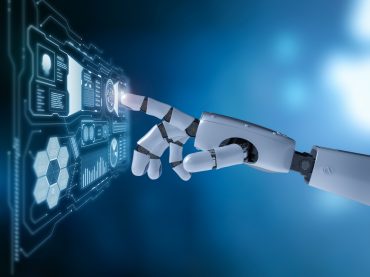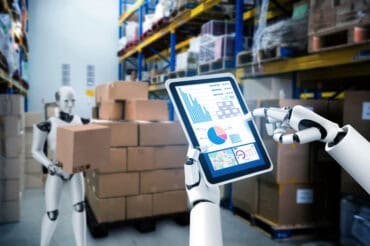
In this week’s real-time analytics news: Accenture and Lenovo announced plans for major investments to bring AI to their customers.
Keeping pace with news and developments in the real-time analytics market can be a daunting task. Fortunately, we have you covered with a summary of the items our staff comes across each week. And if you prefer it in your inbox, sign up here!
Accenture announced a $3 billion investment over three years in its Data & AI practice to help clients across all industries rapidly and responsibly advance and use AI to achieve greater growth, efficiency, and resilience. The announcement includes a range of investments that Accenture plans to make, including:
- Accenture will invest in assets, industry solutions, ventures, acquisitions, talent, and ecosystem partnerships to deepen and develop new skills and capabilities across diagnostic, predictive, and generative AI.
- The Data & AI practice will double its AI talent to 80,000 professionals through a mix of hiring, acquisitions, and training.
- Accenture will create accelerators for data and AI readiness across 19 distinct industries as well as pre-built industry and functional models that take advantage of new generative AI capabilities.
- To advance the use of generative AI, its Center for Advanced AI is dedicated to maximizing the value of this technology across clients and within Accenture. This includes extensive R&D and investments to reimagine service delivery using generative and other emerging AI capabilities.
Lenovo unveiled the next phase of its AI growth strategy with an additional $1 billion investment over three years to accelerate AI deployment for businesses around the world. As part of the additional investment, Lenovo is committing $100 million to grow the Lenovo AI Innovators program, which has delivered 150+ cutting-edge AI solutions created with 45 leading ISV partners in the program’s first year. The new solutions are bringing AI from the lab to scale and enabling the technology shifts underway within high-growth sectors. With the new solutions, customers can more rapidly deploy and leverage cutting-edge AI capabilities, like generative AI, computer vision, voice AI and virtual assistants.
AWS kicked off the first day of re:Inforce with keynote presentations from CJ Moses, CISO, and Becky Weiss, Senior Principal Engineer, who announced 14 new security offerings across cloud security, management tools, encryption, and more. Some of the items with an RTInsights flavor include:
- Amazon CodeGuru Security is now available in preview – Amazon CodeGuru Security is a static application security testing (SAST) tool that uses Machine Learning to help identify code vulnerabilities and provide guidance customers can use as part of remediation.
- Amazon Detective extends finding groups to Amazon Inspector – Amazon Detective has expanded finding groups to include Amazon Inspector network reachability and software vulnerability findings alongside Amazon GuardDuty findings.
- Announcing the AWS Global Partner Security Initiative – The AWS Global Security Initiative provides Global System Integrators (GSI) partners the opportunity to jointly develop innovative and transformational security and compliance services with AWS, delivering on the promise of actionable security data leveraging the power of Generative AI.
Real-time analytics news in brief
AMD made a series of announcements related to its AI Platform strategy. One announcement was related to the AMD Instinct MI300 Series accelerator family. It introduced the AMD Instinct MI300X accelerator, an advanced accelerator for generative AI. The company also showcased the ROCm software ecosystem for data center accelerators, highlighting the readiness and collaborations with industry leaders, such as the PyTorch Foundation, to bring together an open AI software ecosystem.
Apptio launched new FinOps capabilities to its Cloudability product family. New releases include expanded rightsizing and optimization recommendations across the major public cloud providers, integration with Red Hat OpenShift Service on AWS, and Cloudability Savings Automation (the updated name and latest version of Cloudwiry, which Apptio acquired in January 2023.)
BMC unveiled generative AI enhancements to the BMC Helix Service and Operations Management platform. Specifically, the BMC HelixGPT solution uses integrated large language models (LLMs) to harmonize traditionally siloed data sources, deriving actionable insights for anomalies and autonomous resolution of mundane issues.
Canonical announced the extension of its commercial OpenStack offering to small-scale cloud environments with a new project Sunbeam. The project is 100% open source and is available free of charge. Early adopters can also opt-in for comprehensive security coverage and full commercial support under the Ubuntu Pro + Support subscriptions once they complete the deployment themselves.
Cognite announced the launch of Cognite AI, a Generative AI Accelerator for Industrial Data and Value Realization. Cognite AI offers a suite of Generative AI capabilities within Cognite’s core Industrial DataOps platform, Cognite Data Fusion. Cognite Data Fusion with Cognite AI improves operations by rapidly accelerating cloud adoption and increasing the efficiency of industrial workflows.
DataStax announced a new, GPT-based schema translator in its Astra Streaming cloud service that uses generative AI to transfer data between systems with different data structures within an enterprise. The new Astra Streaming GPT Schema Translator automatically generates “schema mappings,” a traditionally difficult and time-consuming process when building and maintaining event streaming pipelines.
Darktrace announces the launch of new risk and compliance models to help its customers address the increasing risk of IP loss and data leakage. These new risk and compliance models for Darktrace DETECT and RESPOND make it easier for customers to put guardrails in place to monitor and, when necessary, respond to activity and connections to generative AI and large language model (LLM) tools.
Dremio announced the integration of generative AI capabilities into its platform. Text-to-SQL is now available; an Autonomous Semantic Layer and Vector Lakehouse Capabilities are coming soon. These enhancements solidify Dremio’s commitment to empowering organizations with tools for data exploration, analysis, and discovery.
Grafana Labs announced the release of Grafana 10, kicking off celebrations for the open-source project’s 10-year anniversary. Grafana 10 offers an enhanced onboarding experience that makes it possible for new users to install Grafana, set up data sources, and create their first dashboard in minutes. This release also includes a new suite of advanced features emphasizing efficiency and intuitive navigation and improvements in user authorization and resource organization that enable swift data retrieval.
Netlify announced Netlify Connect, a unified data layer that enables organizations to seamlessly transition from monolithic to composable architecture. With Netlify Connect, enterprises have the freedom to migrate to a fully composable web stack at their own pace and reap modern web benefits, including agility, performance, and scalability.
OctoML announced OctoAI, a self-optimizing compute service for AI. The new platform offers developers a fully-managed cloud infrastructure designed to abstract away the complexity of building and scaling AI applications. OctoAI provides the freedom to run, tune, and scale the models businesses choose, including off-the-shelf, open-source software (OSS) and custom models.
Pegasystems announced the latest edition of its Pega Infinity software suite with new features that will accelerate low-code development, continuously optimize existing processes, and create effortless experiences for employees and customers alike. These new capabilities will help organizations on their path toward becoming autonomous enterprises so they can innovate faster, increase productivity, and personalize customer experiences while reducing costs and manual work.
Rocket Software unveiled the latest version of Rocket Data Intelligence, a self-service data platform built on automation that spans cloud, distributed, and mainframe infrastructures to power the democratization of data. Rocket Data Intelligence enables all users to see a full picture of the organization’s data landscape and the data context needed to understand which data can be trusted.
Salesforce announced AI Cloud, a suite of capabilities optimized for delivering trusted, open, and real-time generative experiences across all applications and workflows. AI Cloud’s new Einstein GPT Trust Layer resolves concerns of risks associated with adopting generative AI by enabling customers to meet their enterprise data security and compliance demands while offering customers the benefits of generative AI.
In other Salesforce-related news, CData Software announced that Salesforce Data Cloud customers will have access to select connectors from CData that can be leveraged to expand the Connectors Catalog and bring more data into Data Cloud from their SaaS, database, and file-based sources.
Snorkel AI introduced the Foundation Model Data Platform, powered by its programmatic data development approach. With Snorkel AI’s Foundation Model Data Platform, any company can now use its proprietary enterprise data and knowledge to build custom foundation models (FMs) or large language models (LLMs) or improve the accuracy of leading commercial or open-source models.
Vianai Systems unveiled its next-generation AI and ML monitoring platform: VIANOPS. VIANOPS reduces AI risk for safer, more responsible, and more reliable AI no matter how many models an enterprise relies on. VIANOPS addresses common problems with built-in smart alerts triggered when a model starts to deviate from set parameters, root cause analysis, and the ability to monitor models with tens of thousands of predictions per second.
Partnerships, collaborations, and more
Hitachi Vantara announced two new global partnership agreements with Cisco. The agreements bring Hitachi Vantara into Cisco’s Service Provider and Solution Technology Integrator (STI) partner programs, respectively, enabling the company to seamlessly integrate Cisco technologies with its storage products. Additionally, as a member of Cisco’s Service Provider program, Hitachi Vantara offers consumption-based managed services to Cisco customers looking for data center and hybrid cloud services.
Alteryx has launched new technical capabilities to enable customers to leverage the power of the Databricks Lakehouse Platform with Alteryx Analytics Cloud. These capabilities build on Alteryx’s portfolio, which includes Alteryx AiDIN and Databricks’ large language models (LLM) like the recent Dolly.
Boomi announced Event Streams, a multi-tenant enterprise message queuing and streaming service fully hosted and managed within the Boomi platform. Now available through Boomi and in AWS Marketplace, the new service allows organizations to create integrations that are more resilient, scalable, and real-time than traditional point-to-point integration processes.
CData Software announced that Salesforce Data Cloud customers will have access to select connectors from CData that can be leveraged to expand the Connectors Catalog and bring more data into Data Cloud from their SaaS, database, and file-based sources. To that end, using CData Connectors, Salesforce customers will be able to streamline access to customer data across a wide collection of data sources and touchpoints.
Comet announced a partnership with Snowflake to deliver solutions that will empower data scientists to build superior models with greater speed. Through the partnership, Comet will integrate its solutions with Snowflake’s single, unified platform so developers can track and version their Snowflake queries and datasets within their own Snowflake environment.
Datadobi announced its StorageMAP Assess solution and StorageMAP Unstructured Data Management software is now available in AWS Marketplace. By being available in AWS Marketplace, Datadobi’s channel partners can now offer their customers a comprehensive solution for assessing and managing unstructured data with ease.
Hexagon AB announced a collaboration with NVIDIA to enable industrial digital twin solutions. The solutions will unite reality capture, manufacturing twins, AI, simulation, and visualization to deliver real-time comparison to real-world models.
Kinetica announced that it has expanded its partner ecosystem in the United States, Europe, and Asia to help meet the growing demand for real-time, vectorized, analytic database for time-series and spatial workloads. To that end, the company added strategic global systems integrators to its partner roster, including Expero, Riskfuel, and Semantic AI.
ngrok has announced an integration with Datadog Log Management. With the Datadog integration, developers can send detailed logs of ngrok traffic to Datadog, gaining insights. Additionally, they can capture logs at the TCP or HTTP layer, introspect ngrok middleware behaviors, and filter events with CEL predicates, tailoring their logging experience to specific needs.
Oracle with Cohere announced plans to develop generative AI services to help organizations automate end-to-end business processes, improve decision-making, and enhance customer experiences. Built on Oracle Cloud Infrastructure (OCI) and leveraging Oracle’s Supercluster capabilities, Oracle generative AI services will span applications to infrastructure.
Pegasystems announced the availability of its Pega Cloud solutions on Google Cloud as a fully managed as-a-service offering. This provides Pega Cloud clients with a highly scalable and secure cloud solution to manage and drive Pega’s low-code platform for AI-powered decisioning and workflow automation solutions across their organization.
If your company has real-time analytics news, send your announcements to ssalamone@rtinsights.com.
In case you missed it, here are our most recent previous weekly real-time analytics news roundups:






























